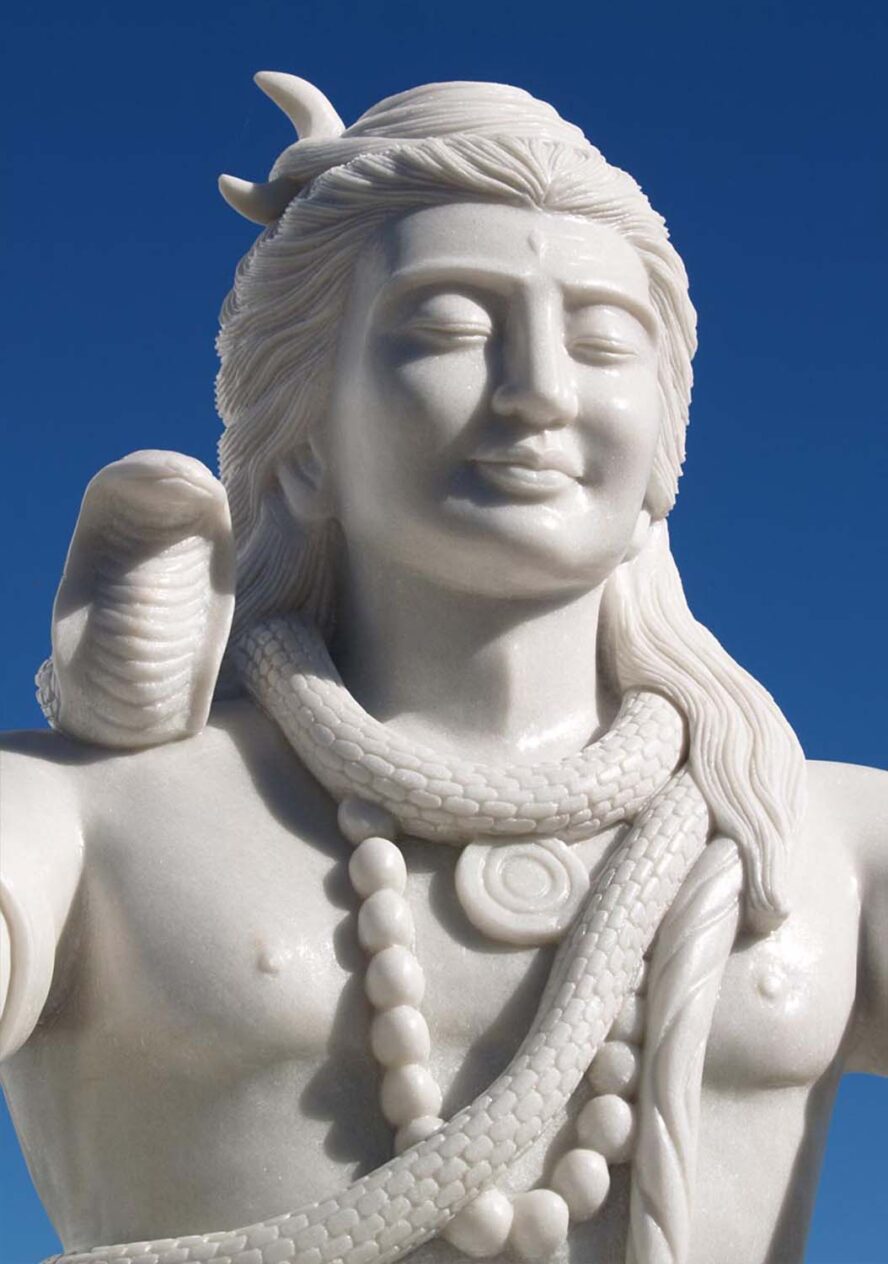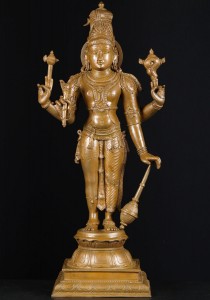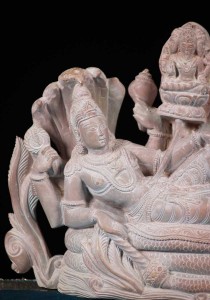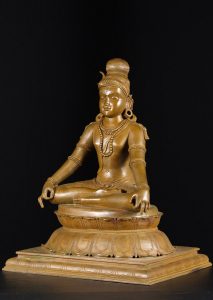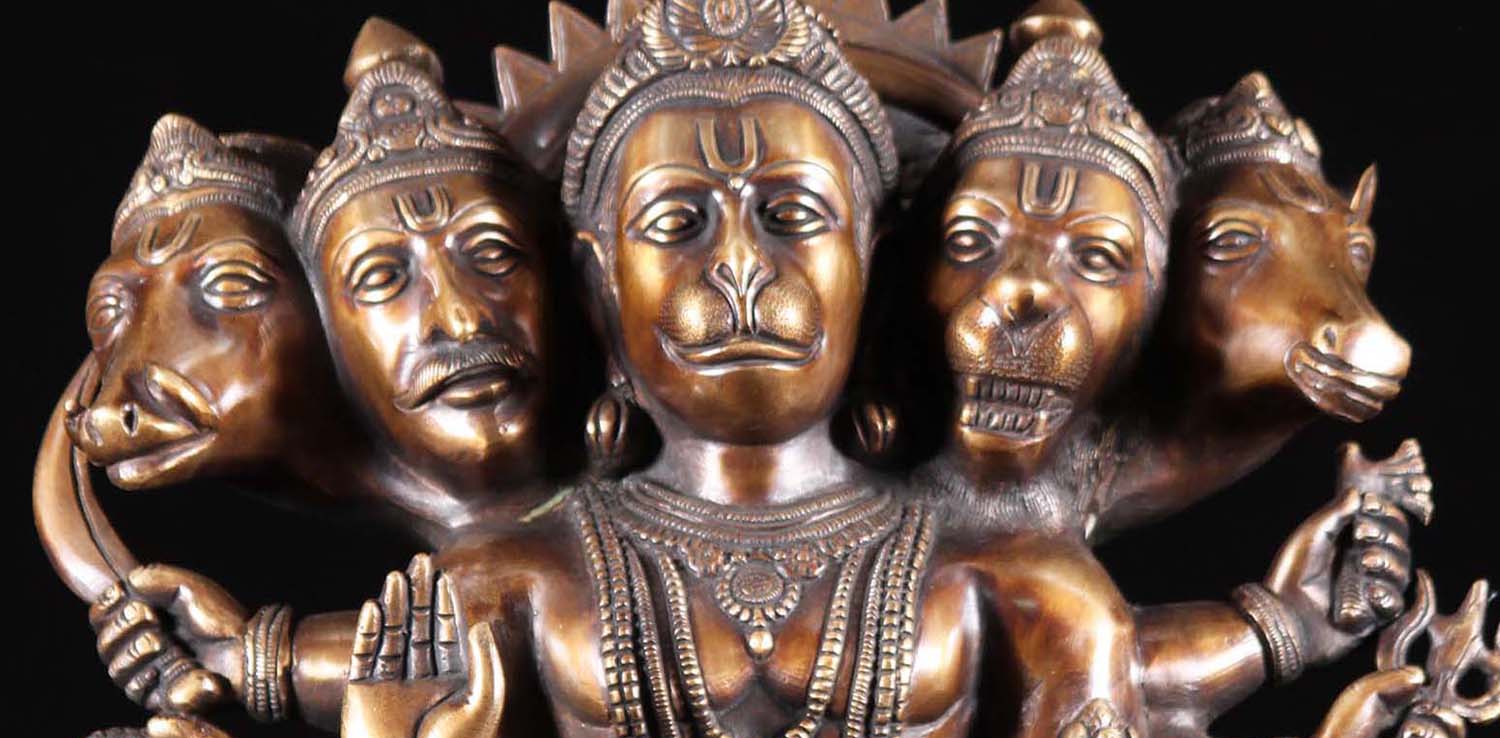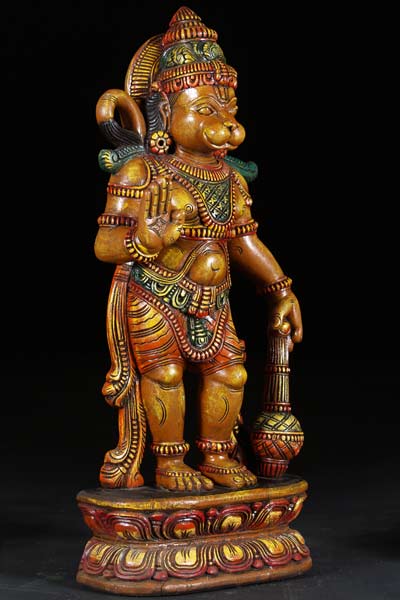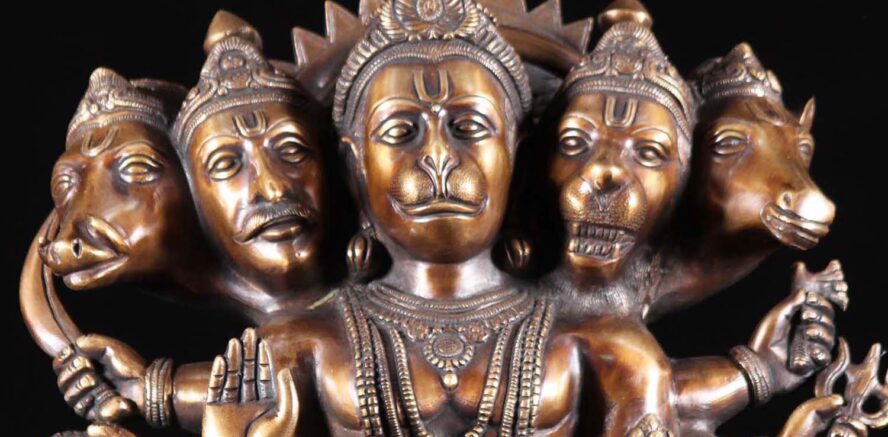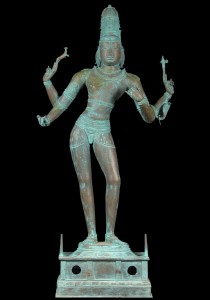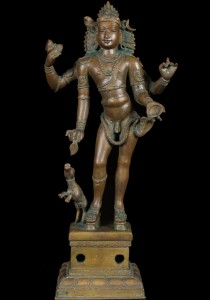Maha Shivarathri is the most auspicious of festivals dedicated to the Hindu God Shiva. Here are 5 Shiva Mantras to help you celebrate Lord Shiva! It is believed that on this day Lord Shiva appeared to the world in the form of a pillar of light, or Jyotirlinga. Lord Shiva, the primordial teacher, is believed to be easily pleased; thus, any worship offered to him – regardless of its simplicity or grandeur – is thought to bring about great merit. All across India, and in many Hindu communities around the world, nightlong vigils are observed in honor of Lord Shiva. Devotees offer abhisheka, or a ritual bath, to bronze and stone sculptures of Lord Shiva in his many forms. Among the most popular of the forms that receive worship on this day are the Shiva Linga, Lord Dakshinamurthy, Lord Bhairava, and Lord Somaskanda.
Since Shiva is easily pleased, offering milk, water, leaves, flowers, clothes, fruits, or even an oil lamp is commendable. Simply meditating upon the form of Shiva with a pure mind and utmost devotion is considered the highest form of worship. The sage Adi Shankara wrote Shiva Manasa Puja as an affirmation of this notion. In this beautifully composed hymn, Shankara performs the Puja of Lord Shiva with vivid and devout imagination. Reciting this hymn on the night of Maha Shivarathri is the best way to begin or end the night’s festivities!
1.
“Ratnaiḥ kalpitamāsanaṃ himajalaiḥ snānaṃ ca divyāmbaraṃ
nānāratna vibhūṣitaṃ mṛgamadā modāṅkitaṃ candanam
jātī campaka bilvapatra racitaṃ puṣpaṃ ca dhūpaṃ tathā
dīpaṃ deva dayānidhe paśupate hṛtkalpitaṃ gṛhyatām”
Meaning:
Oh ocean of compassion! Oh lord of those bound by the noose!
I imagine a throne made of precious gemstones to seat you, cool water trickling from the Himalayas to bathe you, divine clothed embroidered with various jewels to adorn you, flowers composed of jasmine, champak, and Bilva leaves, divine incense, and a bright oil lamp.
Oh Lord, please accept these offerings which I imagine in my heart for you!
2.
“Sauvarṇe navaratnakhaṇḍa racite pātre ghṛtaṃ pāyasaṃ
bhakṣyaṃ pañcavidhaṃ payodadhiyutaṃ rambhāphalaṃ pānakam
śākānāmayutaṃ jalaṃ rucikaraṃ karpūra khaṇḍojjcalaṃ
tāmbūlaṃ manasā mayā viracitaṃ bhaktyā prabho svīkuru“
Meaning: Rice pudding and ghee in a golden bowl studded with the nine precious gems, five dishes prepared with milk and curd, plantains, juice, tasty water infused with herbs, and the aromatic betel leaf. These I have prepared in my mind with utmost devotion. Please accept them oh Lord!
3.
“Chatraṃ cāmarayoryugaṃ vyajanakaṃ cādarśakaṃ nirmalaṃ
vīṇā bheri mṛdaṅga kāhalakalā gītaṃ ca nṛtyaṃ tathā
sāṣṭāṅgaṃ praṇatiḥ stuti-rbahuvidhā-hyetat-samastaṃ mayā
saṅkalpena samarpitaṃ tava vibho pūjāṃ gṛhāṇa prabho“
Meaning: I offer a splendid umbrella to shade you, fly whisks and a fan to cool you, a spotless mirror to see you, music from the vīṇā, bheri, and mṛdaṅga to please you, sweet songs and dances to entertain you, a full prostration to respect you, and abundant forms of hyms to praise you. Please accept my puja oh Lord!
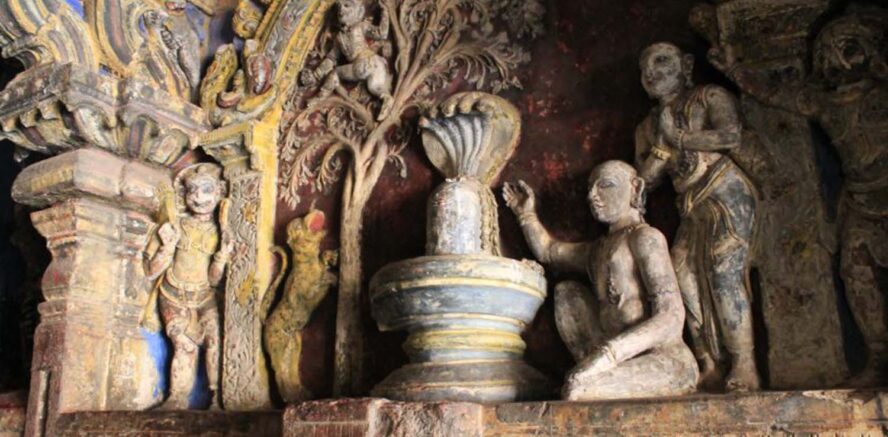
4.
“ātmā tvaṃ girijā matiḥ sahacarāḥ prāṇāḥ śarīraṃ gṛhaṃ
pūjā te viṣayopabhoga-racanā nidrā samādhisthitiḥ
sañcāraḥ padayoḥ pradakṣiṇavidhiḥ stotrāṇi sarvā giro
yadyatkarma karomi tattadakhilaṃ śambho tavārādhanam”
Meaning: You are my soul, Parvathi is my intellect, your attendants are my five vital breaths, my body is your abode. My involvement in the world is nothing but worship unto you. My roaming feet are constantly in the divine act of walking around you, all my speech is in praise to you. All the work I do is a form of worship to you, oh Lord!
5.
“kara caraṇa kṛtaṃ vākkāyajaṃ karmajaṃ vā
śravaṇa nayanajaṃ vā mānasaṃ vāparādham
vihitamavihitaṃ vā sarvametat-kṣamasva
jaya jaya karuṇābdhe śrī mahādeva śambho“
Meaning: Whatever may be the sins I have committed with my hands and feet, those sins born of my hands and body, or the sins arising from my work. Whatever may be the sins born of my ears and eyes, or of my mind, or those sins arising from my doing what has been prescribed and not prescribed. Please forgive all of these sins, oh Lord. Victory unto you, oh ocean of compassion, the greatest and most auspicious of gods!
View All Our Mantras to Hindu Gods
including English and Sanskrit translations
| 10 Kali Mantras | 15 Saraswati Mantras | 4 Ganesha Mantras |
| 6 Murugan Mantras | 8 Krishna Mantras | 7 Hanuman Mantras |
| 3 Lakshmi Mantras | 8 Vishnu Mantras | 5 Shiva Mantras |

